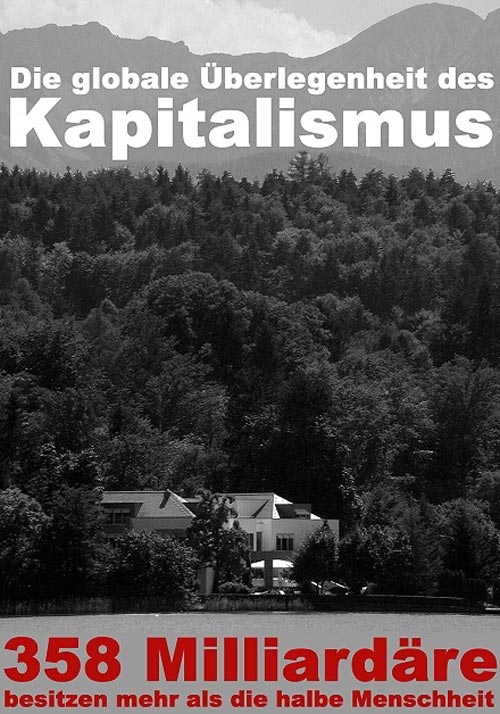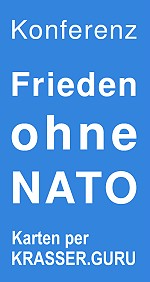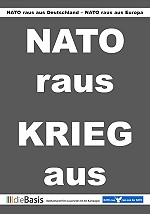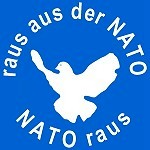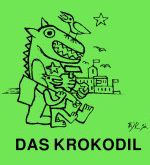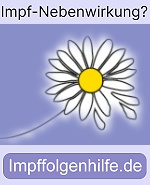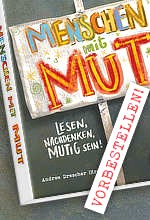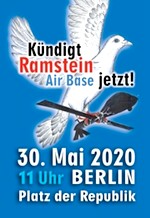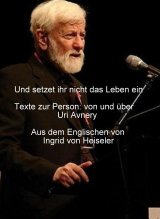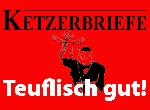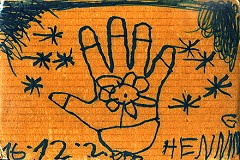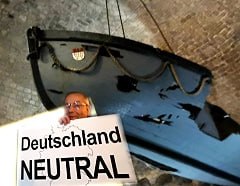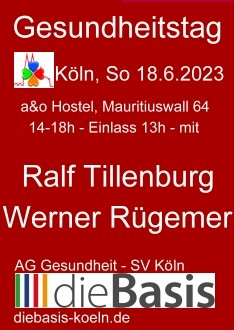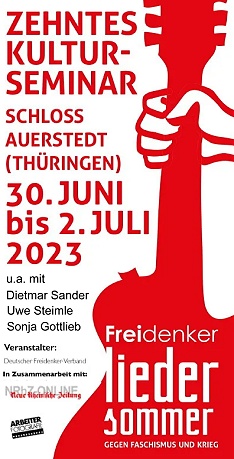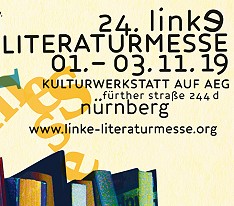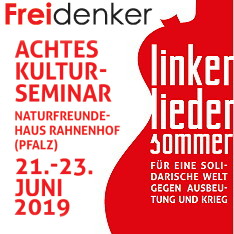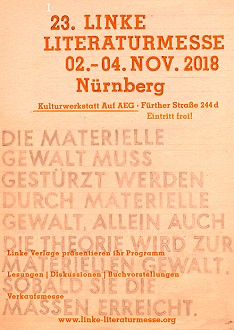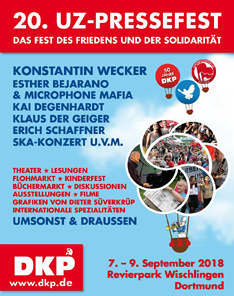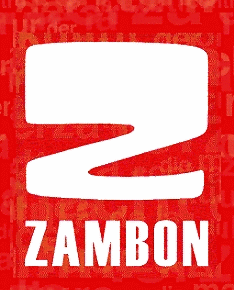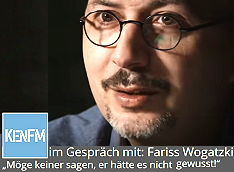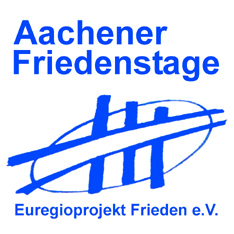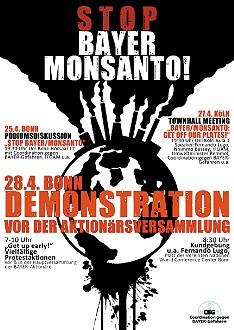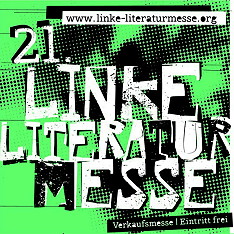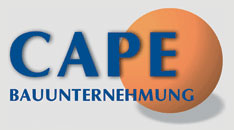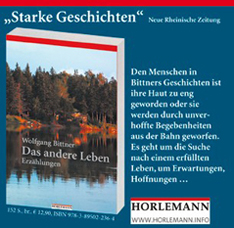SUCHE
Unabhängige Nachrichten, Berichte & Meinungen
Druckversion
Globales
Interview der "New York Times" mit Donald Trump
„Gerne wäre ich derjenige, der Israel und Palästina Frieden bringen kann“
Von Anneliese Fikentscher und Andreas Neumann
 Bereits in der vergangenen Ausgabe der NRhZ war das Interview der "New York Times" (1) mit Donald Trump Thema. Es ging um die Beziehungen zwischen USA und Russland sowie um seinen Chefstrategen Steve Bannon. Angesprochen ist im Interview der "New York Times" aber auch das Thema Palästina/Israel. „Gerne wäre ich derjenige, der Israel und Palästinensern Frieden bringen kann“, sagt Donald Trump. Und weiter: "Ich würde das sehr gut finden. Es wäre eine großartige Leistung, denn niemand war dazu bislang fähig... Einflußreiche Israelische Geschäftsleute sagen mir, das sei nicht zu machen, das sei unmöglich. Ich stimme dem nicht zu. Ich glaube, Frieden ist machbar. Ich glaube, die Menschen sind es leid, erschossen und getötet zu werden... Ich habe Gründe zu glauben, dass ich es schaffen kann.“ Darüber berichtet auch die "Jerusalem Post" (2).
Bereits in der vergangenen Ausgabe der NRhZ war das Interview der "New York Times" (1) mit Donald Trump Thema. Es ging um die Beziehungen zwischen USA und Russland sowie um seinen Chefstrategen Steve Bannon. Angesprochen ist im Interview der "New York Times" aber auch das Thema Palästina/Israel. „Gerne wäre ich derjenige, der Israel und Palästinensern Frieden bringen kann“, sagt Donald Trump. Und weiter: "Ich würde das sehr gut finden. Es wäre eine großartige Leistung, denn niemand war dazu bislang fähig... Einflußreiche Israelische Geschäftsleute sagen mir, das sei nicht zu machen, das sei unmöglich. Ich stimme dem nicht zu. Ich glaube, Frieden ist machbar. Ich glaube, die Menschen sind es leid, erschossen und getötet zu werden... Ich habe Gründe zu glauben, dass ich es schaffen kann.“ Darüber berichtet auch die "Jerusalem Post" (2).
In dem Interview, das die "New York Times" mit dem zum US-Präsidenten gewählten Donald Trump geführt und am 23. November 2016 veröffentlicht hat, werden auch die Beziehungen der USA zu Russland und Putin angesprochen. Auf die Frage, ob es einen Reset, einen Neustart, geben werde, antwortet Trump: „Ich würde diesen Begriff, nach allem, was geschehen ist, nicht verwenden... Ich möchte gern mit Russland gut auskommen und ich denke, dass auch Russland gerne mit uns gut auskommen möchte. Das ist in unserem gemeinsamen Interesse... Wäre es nicht schön, wenn wir gut mit Russland auskämen. Wäre es nicht schön, wenn wir gemeinsam gegen den Islamischen Staat vorgingen... Wir müssen dem Wahnsinn, der sich in Syrien abspielt, ein Ende setzen.“
Über diese Äußerungen Trumps berichtet auch Sputnik (3) und kommentiert: „Putin hatte am 14. November 2016 mit Trump telefoniert. Die Politiker stimmten in der Einschätzung des Zustandes der Beziehungen zwischen Moskau und Washington überein, bezeichneten sie als unbefriedigend und sprachen sich für eine aktive Arbeit zu deren Normalisierung aus. Am 8. November war der republikanische Präsidentschaftskandidat und US-Milliardär Donald Trump zum 45. Präsidenten der USA gewählt worden. Am 20. Januar 2017 wird Trump offiziell sein Amt antreten und damit Obama im Oval Office ablösen. Der Begriff Neustart (Reset) in den russisch-amerikanischen Beziehungen war während der ersten Präsidentschaft von Barack Obama geprägt worden. Er und seine damalige Außenministerin Hillary Clinton sprachen damals von der Notwendigkeit, das Zusammenwirken mit Moskau zu verbessern.“
Thema des Interviews ist unter anderem auch Trumps Chefstratege Steve Bannon, dem von interessierter Seite vorgeworfen wird, Rassist und Antisemit zu sein. Die der Israel-Lobby zuzurechnende Anti-Defamation League überschreibt einen Artikel über Steve Bannon mit: „Bannon steht der radikalen Rechten (alt right) nahe, einem losen Netzwerk von weißen Nationalisten und Antisemiten.“ (4) Auf eine diesbezügliche Frage der "New York Times" antwortet Trump: „Wenn ich ihn für einen Rassisten, einen Rechtsradikalen oder was auch immer in dieser Richtung hielte, würde ich überhaupt nicht darüber nachdenken, ihn zu engagieren.“
Die entsprechenden Interview-Passagen lauten im englischen Original wie folgt:
FRIEDMAN: Will you have a reset with Russia?
TRUMP: I wouldn’t use that term after what happened, you know, previously. I think — I would love to be able to get along with Russia and I think they’d like to be able to get along with us. It’s in our mutual interest. And I don’t go in with any preconceived notion, but I will tell you, I would say — when they used to say, during the campaign, Donald Trump loves Putin, Putin loves Donald Trump, I said, huh, wouldn’t it be nice, I’d say this in front of thousands of people, wouldn’t it be nice to actually report what they said, wouldn’t it be nice if we actually got along with Russia, wouldn’t it be nice if we went after ISIS together, which is, by the way, aside from being dangerous, it’s very expensive, and ISIS shouldn’t have been even allowed to form, and the people will stand up and give me a massive hand. You know they thought it was bad that I was getting along with Putin or that I believe strongly if we can get along with Russia that’s a positive thing. It is a great thing that we can get along with not only Russia but that we get along with other countries.
JOSEPH KAHN, managing editor: On Syria, would you mind, you said you have a very strong idea about what to do with the Syria conflict, can you describe that for us?
TRUMP: I can only say this: We have to end that craziness that’s going on in Syria...
...
DAVIS: Personnel.
TRUMP: Personnel.
DAVIS: You hired Steve Bannon to be the chief strategist for you in the White House. He is a hero of the alt-right. He’s been described by some as racist and anti-Semitic. I wonder what message you think you have sent by elevating him to that position and what you would say to those who feel like that indicates something about the kind of country you prefer and the government you’ll run.
TRUMP: Um, I’ve known Steve Bannon a long time. If I thought he was a racist, or alt-right, or any of the things that we can, you know, the terms we can use, I wouldn’t even think about hiring him. First of all, I’m the one that makes the decision, not Steve Bannon or anybody else. And Kellyanne will tell you that.
[laughter]
...
HABERMAN: Jared Kushner. What will Jared Kushner’s role be in your administration?
TRUMP: Oh. Maybe nothing. Because I don’t want to have people saying ‘conflict.’ Even though the president of the United States — I hope whoever is writing this story, it’s written fairly — the president of the United States is allowed to have whatever conflicts he wants — he or she wants. But I don’t want to go by that. Jared’s a very smart guy. He’s a very good guy. The people that know him, he’s a quality person and I think he can be very helpful. I would love to be able to be the one that made peace with Israel and the Palestinians. I would love that, that would be such a great achievement [Leistung, Triumph, Heldentat,...]. Because nobody’s been able to do it.
HABERMAN: Do you think he can be part of that?
TRUMP: Well, I think he’d be very good at it. I mean he knows it so well. He knows the region, knows the people, knows the players. I would love to be — and you can put that down in a list of many things that I’d like to be able to do. Now a lot of people tell me, really great people tell me, that it’s impossible, you can’t do it. I’ve had a lot of, actually, great Israeli businesspeople tell me, you can’t do that, it’s impossible. I have reason to believe I can do that.
Fussnoten:
1 Vollständige Wiedergabe des Interviews der "New York Times" mit Donald Trump
http://www.nytimes.com/2016/11/23/us/politics/trump-new-york-times-interview-transcript.html
2 Jerusalem Post am 22.11.2016
Arab-Israeli Conflict: Trump floats son-in-law as key to Israeli-Palestinian peace
http://www.jpost.com/Arab-Israeli-Conflict/Trump-floats-son-in-law-as-key-to-Israeli-Palestinian-peace-473390
3 Sputnik-Meldung vom 23.11.2016
https://de.sputniknews.com/politik/20161123313469051-trump-putin-neustart/
4 Anti-Defamation League über Steve Bannon: Five Things to Know – Bannon has embraced the alt right, a loose network of white nationalists and anti-Semites
http://www.adl.org/sp/stephen-bannon-backgrounder/bannon-backgrounder.html
Online-Flyer Nr. 590 vom 30.11.2016
Druckversion
Globales
Interview der "New York Times" mit Donald Trump
„Gerne wäre ich derjenige, der Israel und Palästina Frieden bringen kann“
Von Anneliese Fikentscher und Andreas Neumann
 Bereits in der vergangenen Ausgabe der NRhZ war das Interview der "New York Times" (1) mit Donald Trump Thema. Es ging um die Beziehungen zwischen USA und Russland sowie um seinen Chefstrategen Steve Bannon. Angesprochen ist im Interview der "New York Times" aber auch das Thema Palästina/Israel. „Gerne wäre ich derjenige, der Israel und Palästinensern Frieden bringen kann“, sagt Donald Trump. Und weiter: "Ich würde das sehr gut finden. Es wäre eine großartige Leistung, denn niemand war dazu bislang fähig... Einflußreiche Israelische Geschäftsleute sagen mir, das sei nicht zu machen, das sei unmöglich. Ich stimme dem nicht zu. Ich glaube, Frieden ist machbar. Ich glaube, die Menschen sind es leid, erschossen und getötet zu werden... Ich habe Gründe zu glauben, dass ich es schaffen kann.“ Darüber berichtet auch die "Jerusalem Post" (2).
Bereits in der vergangenen Ausgabe der NRhZ war das Interview der "New York Times" (1) mit Donald Trump Thema. Es ging um die Beziehungen zwischen USA und Russland sowie um seinen Chefstrategen Steve Bannon. Angesprochen ist im Interview der "New York Times" aber auch das Thema Palästina/Israel. „Gerne wäre ich derjenige, der Israel und Palästinensern Frieden bringen kann“, sagt Donald Trump. Und weiter: "Ich würde das sehr gut finden. Es wäre eine großartige Leistung, denn niemand war dazu bislang fähig... Einflußreiche Israelische Geschäftsleute sagen mir, das sei nicht zu machen, das sei unmöglich. Ich stimme dem nicht zu. Ich glaube, Frieden ist machbar. Ich glaube, die Menschen sind es leid, erschossen und getötet zu werden... Ich habe Gründe zu glauben, dass ich es schaffen kann.“ Darüber berichtet auch die "Jerusalem Post" (2).In dem Interview, das die "New York Times" mit dem zum US-Präsidenten gewählten Donald Trump geführt und am 23. November 2016 veröffentlicht hat, werden auch die Beziehungen der USA zu Russland und Putin angesprochen. Auf die Frage, ob es einen Reset, einen Neustart, geben werde, antwortet Trump: „Ich würde diesen Begriff, nach allem, was geschehen ist, nicht verwenden... Ich möchte gern mit Russland gut auskommen und ich denke, dass auch Russland gerne mit uns gut auskommen möchte. Das ist in unserem gemeinsamen Interesse... Wäre es nicht schön, wenn wir gut mit Russland auskämen. Wäre es nicht schön, wenn wir gemeinsam gegen den Islamischen Staat vorgingen... Wir müssen dem Wahnsinn, der sich in Syrien abspielt, ein Ende setzen.“
Über diese Äußerungen Trumps berichtet auch Sputnik (3) und kommentiert: „Putin hatte am 14. November 2016 mit Trump telefoniert. Die Politiker stimmten in der Einschätzung des Zustandes der Beziehungen zwischen Moskau und Washington überein, bezeichneten sie als unbefriedigend und sprachen sich für eine aktive Arbeit zu deren Normalisierung aus. Am 8. November war der republikanische Präsidentschaftskandidat und US-Milliardär Donald Trump zum 45. Präsidenten der USA gewählt worden. Am 20. Januar 2017 wird Trump offiziell sein Amt antreten und damit Obama im Oval Office ablösen. Der Begriff Neustart (Reset) in den russisch-amerikanischen Beziehungen war während der ersten Präsidentschaft von Barack Obama geprägt worden. Er und seine damalige Außenministerin Hillary Clinton sprachen damals von der Notwendigkeit, das Zusammenwirken mit Moskau zu verbessern.“
Thema des Interviews ist unter anderem auch Trumps Chefstratege Steve Bannon, dem von interessierter Seite vorgeworfen wird, Rassist und Antisemit zu sein. Die der Israel-Lobby zuzurechnende Anti-Defamation League überschreibt einen Artikel über Steve Bannon mit: „Bannon steht der radikalen Rechten (alt right) nahe, einem losen Netzwerk von weißen Nationalisten und Antisemiten.“ (4) Auf eine diesbezügliche Frage der "New York Times" antwortet Trump: „Wenn ich ihn für einen Rassisten, einen Rechtsradikalen oder was auch immer in dieser Richtung hielte, würde ich überhaupt nicht darüber nachdenken, ihn zu engagieren.“
Die entsprechenden Interview-Passagen lauten im englischen Original wie folgt:
FRIEDMAN: Will you have a reset with Russia?
TRUMP: I wouldn’t use that term after what happened, you know, previously. I think — I would love to be able to get along with Russia and I think they’d like to be able to get along with us. It’s in our mutual interest. And I don’t go in with any preconceived notion, but I will tell you, I would say — when they used to say, during the campaign, Donald Trump loves Putin, Putin loves Donald Trump, I said, huh, wouldn’t it be nice, I’d say this in front of thousands of people, wouldn’t it be nice to actually report what they said, wouldn’t it be nice if we actually got along with Russia, wouldn’t it be nice if we went after ISIS together, which is, by the way, aside from being dangerous, it’s very expensive, and ISIS shouldn’t have been even allowed to form, and the people will stand up and give me a massive hand. You know they thought it was bad that I was getting along with Putin or that I believe strongly if we can get along with Russia that’s a positive thing. It is a great thing that we can get along with not only Russia but that we get along with other countries.
JOSEPH KAHN, managing editor: On Syria, would you mind, you said you have a very strong idea about what to do with the Syria conflict, can you describe that for us?
TRUMP: I can only say this: We have to end that craziness that’s going on in Syria...
...
DAVIS: Personnel.
TRUMP: Personnel.
DAVIS: You hired Steve Bannon to be the chief strategist for you in the White House. He is a hero of the alt-right. He’s been described by some as racist and anti-Semitic. I wonder what message you think you have sent by elevating him to that position and what you would say to those who feel like that indicates something about the kind of country you prefer and the government you’ll run.
TRUMP: Um, I’ve known Steve Bannon a long time. If I thought he was a racist, or alt-right, or any of the things that we can, you know, the terms we can use, I wouldn’t even think about hiring him. First of all, I’m the one that makes the decision, not Steve Bannon or anybody else. And Kellyanne will tell you that.
[laughter]
...
HABERMAN: Jared Kushner. What will Jared Kushner’s role be in your administration?
TRUMP: Oh. Maybe nothing. Because I don’t want to have people saying ‘conflict.’ Even though the president of the United States — I hope whoever is writing this story, it’s written fairly — the president of the United States is allowed to have whatever conflicts he wants — he or she wants. But I don’t want to go by that. Jared’s a very smart guy. He’s a very good guy. The people that know him, he’s a quality person and I think he can be very helpful. I would love to be able to be the one that made peace with Israel and the Palestinians. I would love that, that would be such a great achievement [Leistung, Triumph, Heldentat,...]. Because nobody’s been able to do it.
HABERMAN: Do you think he can be part of that?
TRUMP: Well, I think he’d be very good at it. I mean he knows it so well. He knows the region, knows the people, knows the players. I would love to be — and you can put that down in a list of many things that I’d like to be able to do. Now a lot of people tell me, really great people tell me, that it’s impossible, you can’t do it. I’ve had a lot of, actually, great Israeli businesspeople tell me, you can’t do that, it’s impossible. I have reason to believe I can do that.
Fussnoten:
1 Vollständige Wiedergabe des Interviews der "New York Times" mit Donald Trump
http://www.nytimes.com/2016/11/23/us/politics/trump-new-york-times-interview-transcript.html
2 Jerusalem Post am 22.11.2016
Arab-Israeli Conflict: Trump floats son-in-law as key to Israeli-Palestinian peace
http://www.jpost.com/Arab-Israeli-Conflict/Trump-floats-son-in-law-as-key-to-Israeli-Palestinian-peace-473390
3 Sputnik-Meldung vom 23.11.2016
https://de.sputniknews.com/politik/20161123313469051-trump-putin-neustart/
4 Anti-Defamation League über Steve Bannon: Five Things to Know – Bannon has embraced the alt right, a loose network of white nationalists and anti-Semites
http://www.adl.org/sp/stephen-bannon-backgrounder/bannon-backgrounder.html
Online-Flyer Nr. 590 vom 30.11.2016
Druckversion
NEWS
KÖLNER KLAGEMAUER
FILMCLIP
FOTOGALERIE
